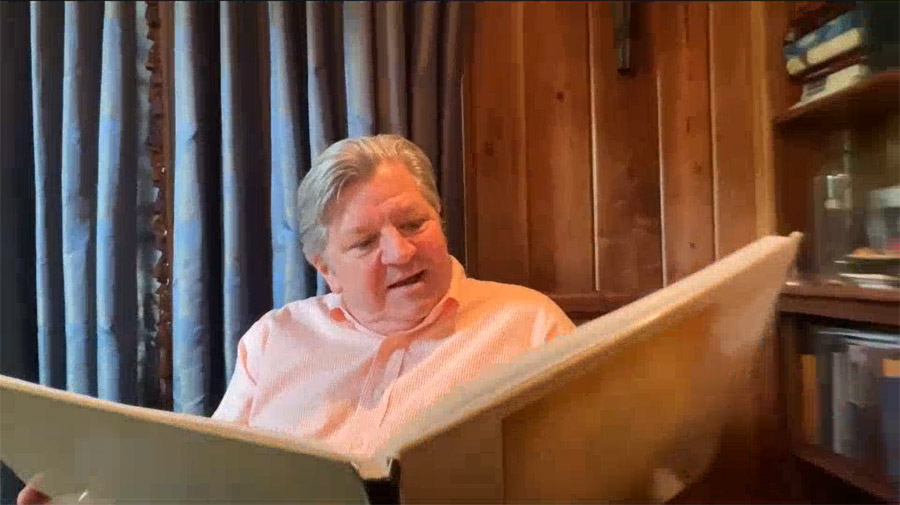Heirloom books capture family legacy for the future
James Fletcher Thompson, an attorney in South Carolina, was looking for a solution. He and his sisters knew what the end result should look like: heirloom books they could spend time with and pass on to future generations. But how to get there?
Last month, he sat down with our team to share the why behind his preservation project: family legacy.
Marcia Spicer, Client Executive: You came to Anderson Archival with a specific request. You wanted help with building a book. What made us the right partner for the job?
James Thompson: We couldn’t figure it out ourselves, and I’ve got a whole team of smart people. When it came to antiquated and large newspaper articles that went across the whole page and into another, it was very hard to protect the source material and to scan it in a way that was manageable. So, my very smart office manager did research, and you all percolated to the top of the list. Based on your follow-up and our meeting together, I didn’t have to make any other calls.
MS: Well, that’s wonderful to hear, Jim. I’m always happy when that’s the case because we love connecting with people and diving into specific needs for clients.
I’d love to talk a little bit about your father. He’s the central figure in the collection we worked on. Would you share a little about him?
JT: He passed away in 2017 at the age of 96. We kept his memorabilia and documents. Really, it kind of sat there. When the time came for the four children to sit down with all of that, we realized that it wasn’t what we wanted it to be. We wanted to be able to share it with each other and for the grandkids as well.
We really needed to have a way of creating something that was accessible for all, so the idea of a book came together.
My dad’s FBI career is what we focused on. There were some old clippings back to the 1940s in newspapers. We tracked his FBI career over 33 years. He started as a clerk in the identification division of the FBI, and he rose through the ranks to be the assistant director, and coincidentally, in charge of the largest division of the Bureau, which happened to be that same identification division that he started in all those years ago.
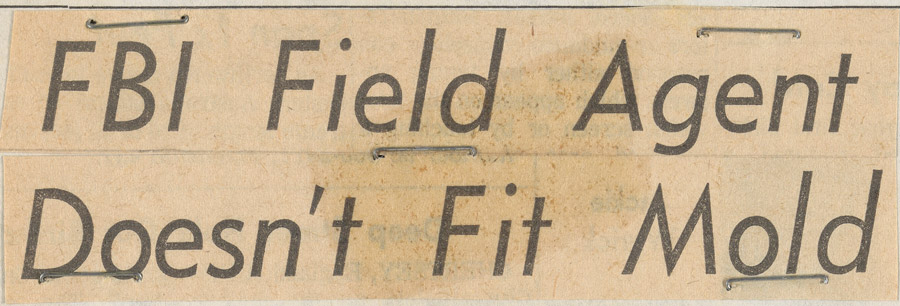
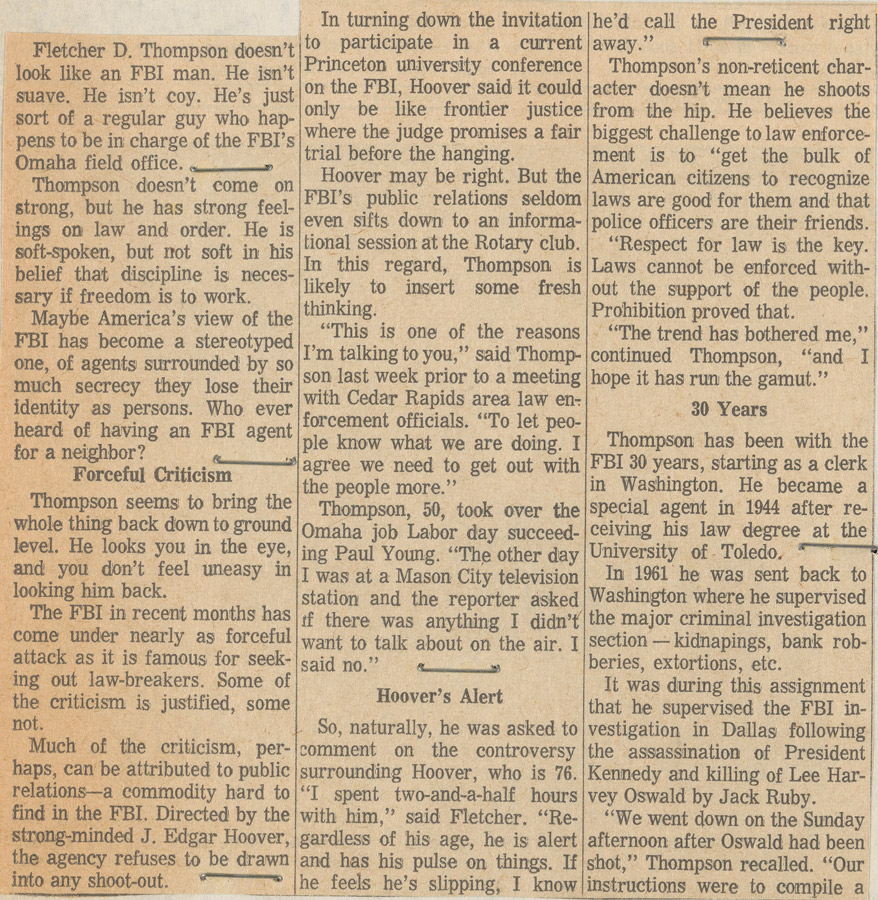
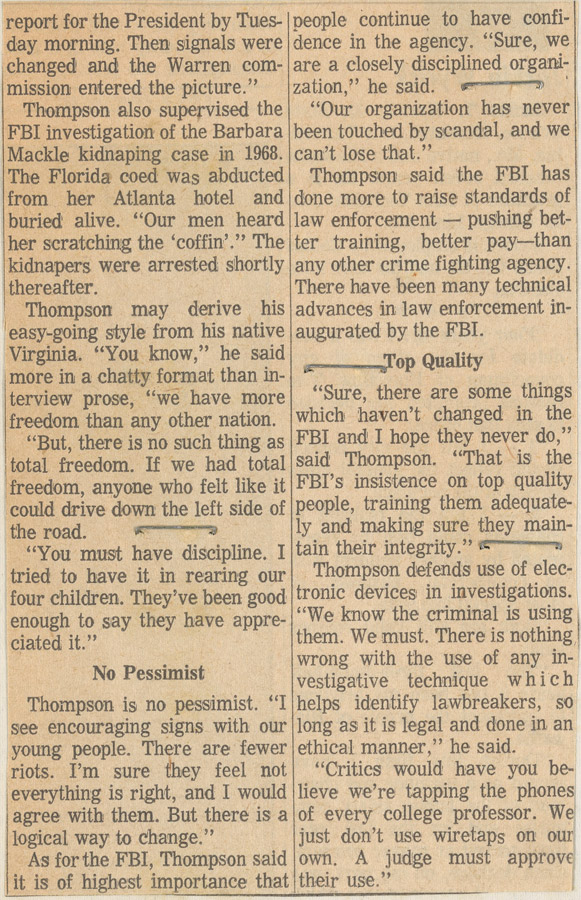
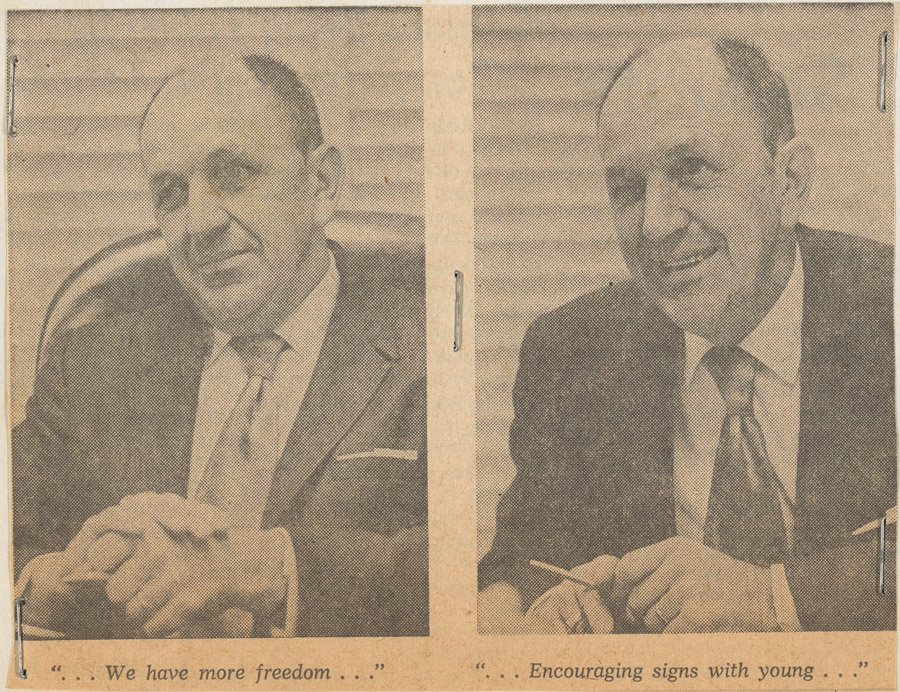
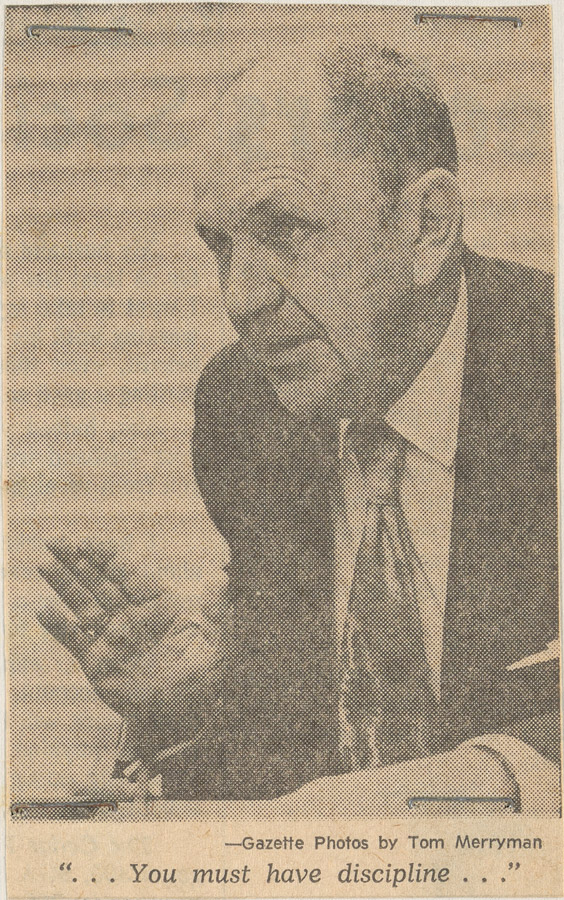
We wanted to put that together to have a lasting legacy of my dad’s work that was accessible to all.
MS: I know some of the clippings touched on you and your father’s relationship. I’m curious how your father influenced your career.
JT: My dad was a lawyer during his FBI career, but in those days, they had a mandatory retirement at the age of 55. It wasn’t perceived to be young then, but my dad had more to give. He was active and curious. He took the South Carolina bar exam some 30 years after he had become a member of the Virginia and D.C. bar. He started practicing law in 1975, and then I went to school in 1986, and by that time my dad had kind of found a niche of adoption law.
So, I joined him in 1989 and also have been focusing on adoption and assisted reproduction law. Collectively, that’s family building law. He began that practice and I’ve taken over where he left off. We practice throughout the state of South Carolina.
MS: Do you know what brought him to adoption law?
JT: It was just another attorney reaching out in his last illness. He was dying, that lawyer, and had three adoptions pending. He was trying to look at his case load and who was a good fit at the bar. He called my dad up, said, “Fletcher, you’ve got a nice way about you. You’ve got a sort of ministerial way about you. This should be non-conflict. It should be affirming for all. Will you do these adoptions?”
And my dad said, “Well, I don’t know adoption law.”
And he said, “Don’t worry. It’s only a page and a half long. Just read the statute.” My dad went from there.
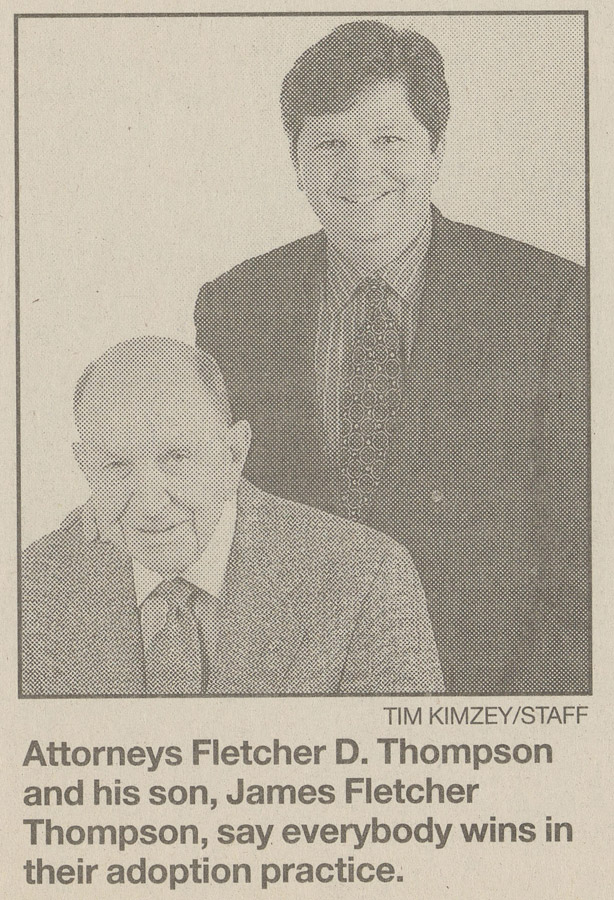
MS: I’d love to ask a little more about your father, of course, and about the materials we were working with. We’ve made a total of four books for you. The first book consisted of newspaper clippings, and the second was more primary source documents from your father’s career. There’s some hot topics there.
You know, of course, everything that was going on politically and publicly during that time. Your father either interacted with it or was some part of it. How did that translate for you and your family at home?
JT: We were pretty oblivious to my dad’s work. I was the youngest, so I was 14 when he retired. I think my sisters were a little bit more engaged with what was going on. We knew that he was sent in 1963 to Dallas, to be responsible along with one other agent, to prepare the first investigative report in the assassination of John F. Kennedy.
Hoover gave him a commendation for the work that he did. Now, all these years later, these things are just becoming public.
That’s an interesting part of it. My dad’s involvement in the JFK assassination investigation was short lived. It was intense. And then he worked in other areas. In civil rights. Identifying an undercover person in the Ku Klux Klan that helped in the bureau’s investigation of that organization.
Working with other crimes was interesting, but he rarely brought that home. The thing that was the most public was he was there during Watergate when L. Patrick Gray had become the director. He was in the committee meeting of less than a dozen people when L. Patrick Gray gave his resignation after having dealt with some sensitive documents in a way that the FBI considered inappropriate.
We were surrounded by all of these documents and didn’t know exactly what to do with them. But we realized they are meaningful and needed to have a way to organize them and disseminate them to his loved ones.
I’m just glad to have it so successfully accomplished. Anderson Archival made it painless for us. I was quite appreciative, because we sent you a pile of material and it came back looking very beautiful.
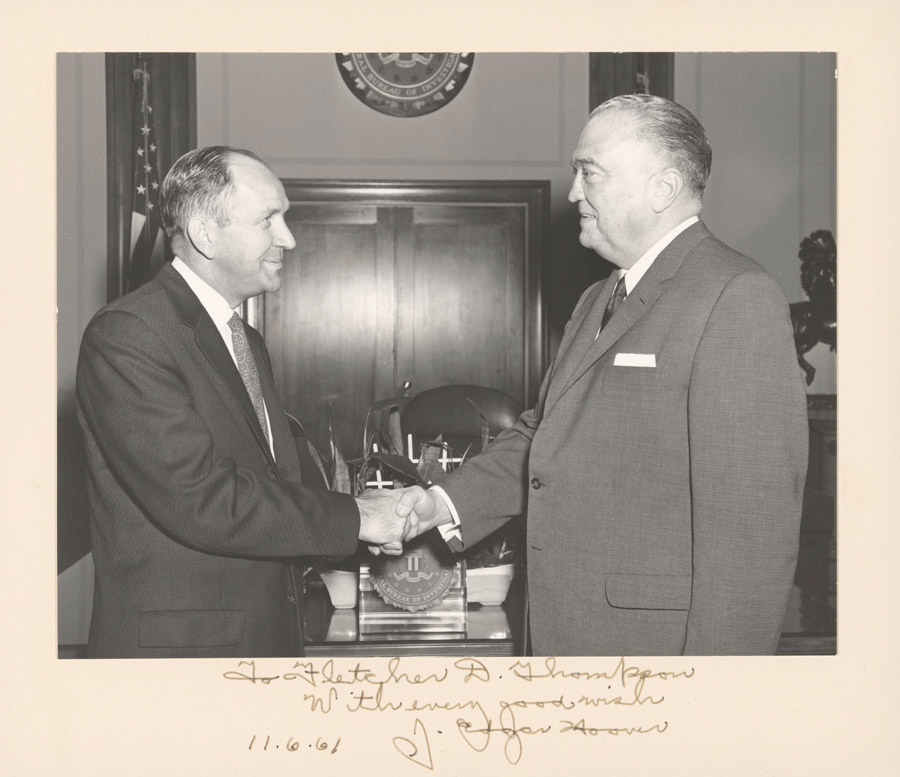
MS: Have you had feedback from other family members when you’ve shared the books?
JT: Everybody is just wowed by it and so glad they have it. Some sat down immediately and have been working their way through it and others have it set aside for a special day.
I’m so very glad to have this.
MS: And have you had the opportunity to flip through? Is it different to immerse yourself?
JT: I’ve read every page, and I had read every page laying it out with you all. My guess is like anything, I’ll revisit it in the years to come. At different stages of my life, and then I’ll see it through a different lens. My guess also is that the grandkids will ebb and flow in their interest, but it’ll be here for them when that time comes.
MS: That’s what’s most important in these collections. Sometimes it’s too late and then it’s not available for the family. Catching it when you’ve got the materials, you’re here to handle it, and pass it down, is so key.
JT: I agree. And by the way, I’m not sure we’re done.
MS: We’ll always take more!
JT: Thank you for your help, Marcia, and give the rest of the team my best.
MS: Absolutely I will. Thank you, Jim.
Do you have a legacy project you’re not sure how to get off the ground? See if Anderson Archival is the solution you’ve been looking for.


